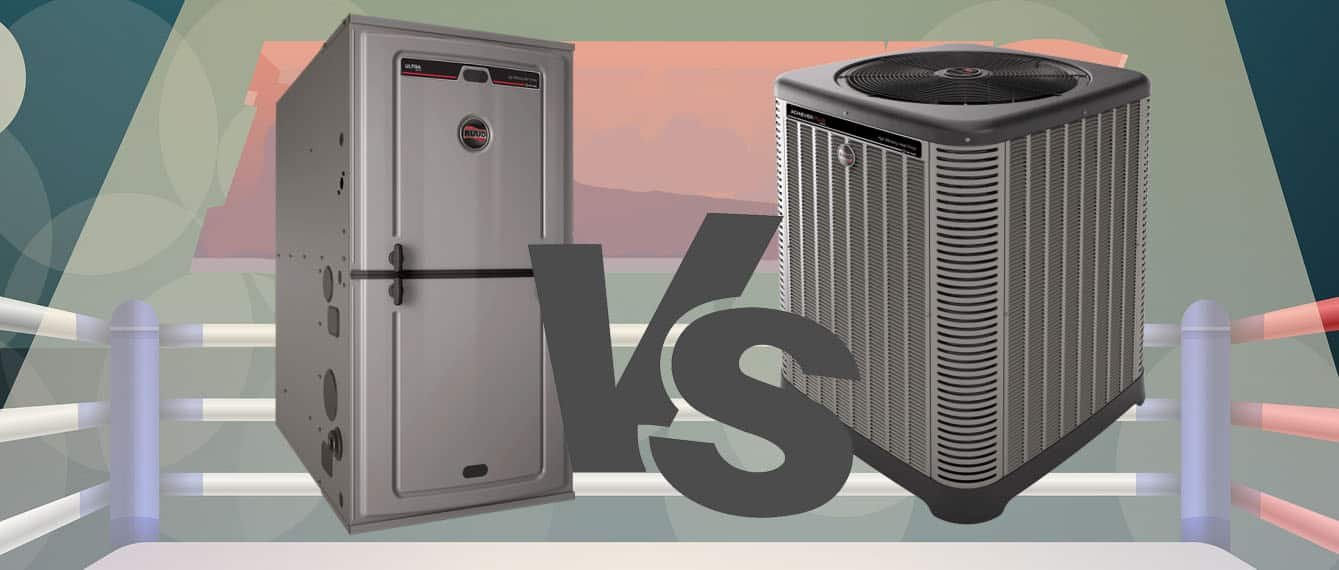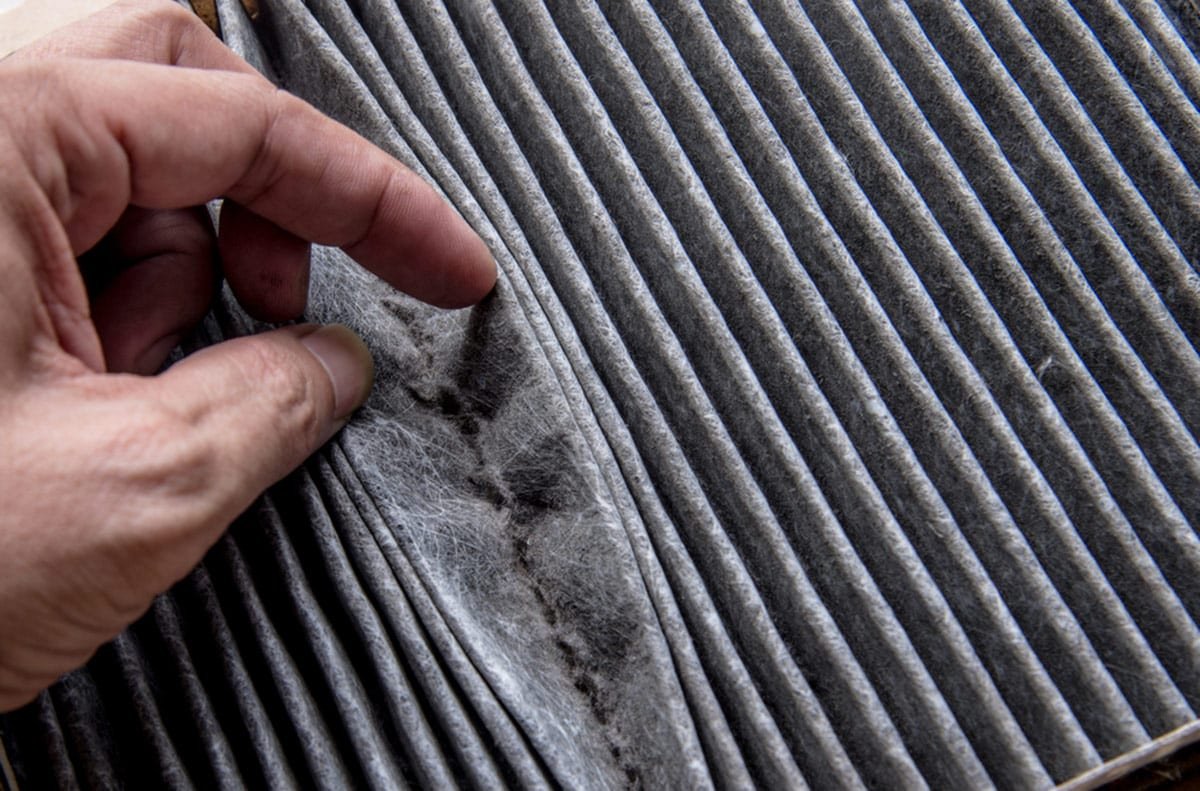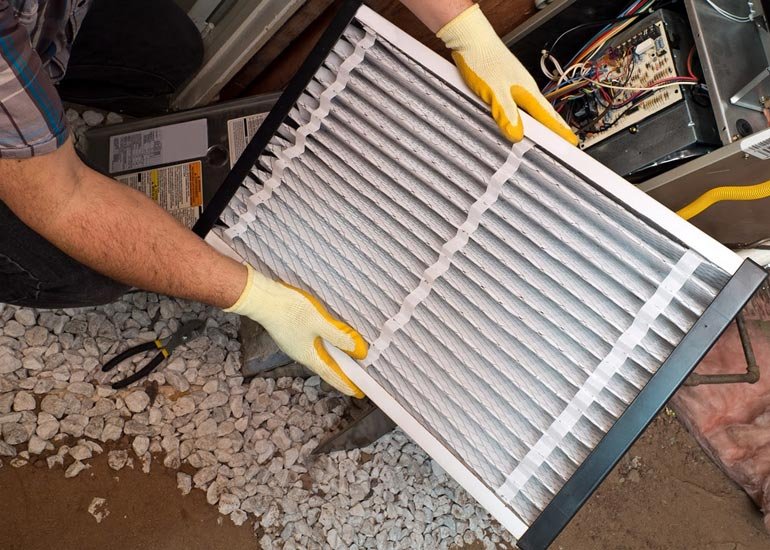The heat pump vs. furnace debate is raging among homeowners of the Greater Toronto Area. If you are confused about which option to choose for your Vaughan home, you have come to the right place. Heat pumps and furnaces are two of the most common home heating options available today.
The systems are pretty different from each other. A furnace uses a combustion process to produce heat, while a heat pump doesn’t generate heat but gathers heat from the outside air and distributes heat inside the house. This article provides information on heat pumps and furnaces to facilitate choosing the right option for your home.
How Does A Heat Pump Work?
A heat pump is a dual-purpose system that works as an air conditioner in the summer and a heater in the winter. It’s a unique piece of equipment that uses existing air to operate. On the other hand, geothermal systems collect and distribute heat from the earth.
Air Source Heat Pumps
An air-source heat pump consists of an outdoor unit, an indoor unit, a reverse valve for the pump to change modes from cool to heat, and a refrigerant line to connect the two systems. A heat pump will function in AC mode during the hottest months in Vaughan. The unit will reverse its operation as soon as the temperature drops and pull heat energy from the outdoor air.
The pressurized refrigerant is the secret here. The heat pump uses a cycle of condensation and evaporation to absorb and transfer heat from one location to another.
How Does A Furnace Work?
A furnace generates its heat by using oil or natural gas to create hot air.
Gas Furnaces
Gas furnaces consist of a burner, a blower fan, heat exchangers, and a flue to vent hot gas exhaust. The gas furnace will receive a signal and send fuel to the burners inside the combustion chamber when the temperature on the thermostat increases.
A pilot light will subsequently ignite the burners and heat the heat exchanger in turn. The blower fan will move air around the heat exchanger and send hot air throughout your home. If you opt for an electric furnace, it has an electrical ignition to begin the heating process.
Which System Is Better?

If you are looking for a cost-effective, eco-friendly, efficient, and durable heating system for your home, heat pumps and gas furnaces tick all the boxes to varying degrees.
Home comfort
Gas furnaces produce hotter and drier heat and more heat regardless of the outdoor temperatures. A heat pump will circulate humid and warm air that may not be as hot as the heat produced by a furnace. On the other hand, heat pumps have some limitations when making heat. For example, if the temperatures drop to minus 28-30 in your area, you may temporarily require a backup heat source. But heat pumps are quite versatile since they can cool your home in the summer months. If your home doesn’t have ductwork, a ductless mini-split heat pump is an excellent solution for your home.
Air quality
Air quality is a standout when choosing between a heat pump and a furnace. With frequent air filter changes and proper furnace maintenance, you can preserve the indoor air quality in your home. But heat pumps don’t produce dangerous CO or carbon monoxide. Hence, you don’t have to worry about a CO leak when using a heat pump. On the other hand, hot air from a furnace can lead to dry skin conditions over time. A heat pump’s humidity levels are naturally higher since it uses moisture to heat the air.
Energy efficiency
Homeowners want to know what system is the most efficient with high energy costs and climate change issues these days. Heat pumps are electrical, but they use less energy and are more efficient than a furnace. A heat pump will provide up to 300% more energy than it consumes. The highest efficient gas furnace is only 95% more efficient than a heat pump. That is why many air-source heat pumps are Energy-Star rated. But leaks or debris in the air ducts can reduce the efficiency of your HVAC unit. Make sure to clean your ductwork system regularly.
Cost of installation
It costs more to install a heat pump than a furnace. Many factors can affect the installation of these systems, including:
- Installation prices
- The condition of the ductwork system in your home
- Access to natural gas
- The configuration of the new heating system
- Wiring and equipment in your home
The operational cost of a heat pump is lesser than a furnace. Hence, you can recoup the higher upfront costs quickly.
Life expectancy
Because a heat pump is used year-round, it has a shorter life expectancy than a furnace. A heat pump may last for 10-15 years in Vaughan. A well-maintained gas furnace can easily last for more than 20 years. On the other hand, a furnace has fewer motorized parts, and its usage is limited to the colder months of the year.
Heat Pump vs. Furnace – Save money with Canadian Rebates
It is the perfect time to invest in an energy-efficient home heating system. The Canadian Government offers incentives to Vaughan area homeowners to lower greenhouse gas emissions. The Canada Greener Homes Grant provides the following rebates for Ontario residents:
- $50 maximum rebate for smart thermostats
- $5,000 maximum rebate for heat pumps – Efficient heating
- $600 maximum rebate for home evaluations
You should abide by all the program guidelines to qualify for rebates.
Furnace Repair Vaughan offers expert heat pump & furnace installation throughout the Greater Toronto Area. We will evaluate your home needs and recommend the best solution for your needs and budget. Our expert team is committed to answering all your furnace & air-source heat pump installation questions.









